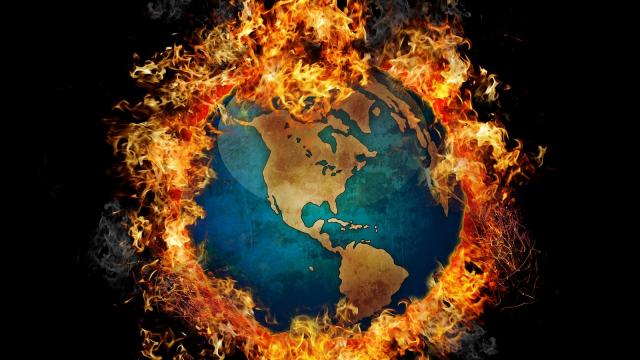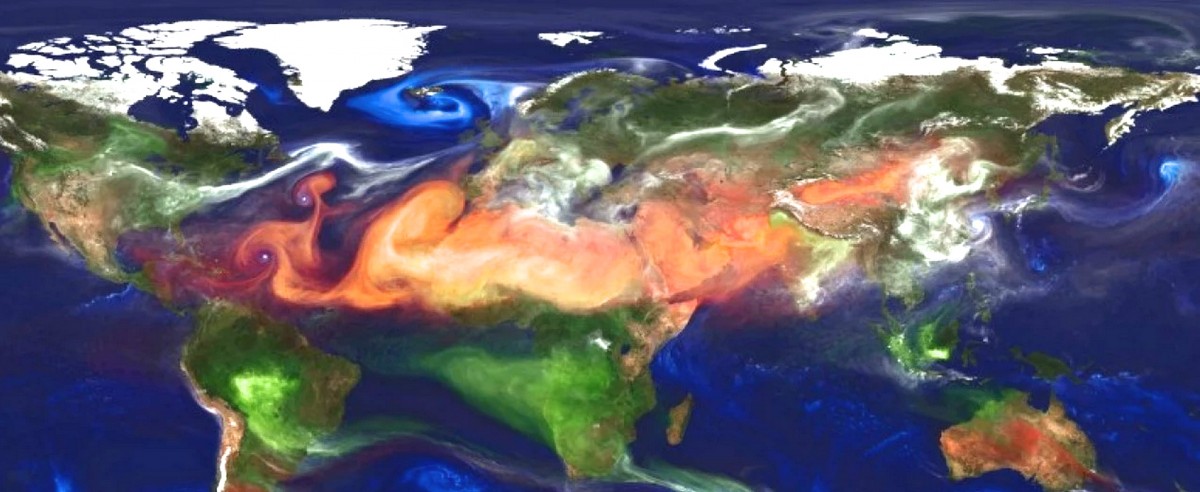
The world’s climate has reached a major turning point and is set to deliver record-breaking global temperatures in 2015 and 2016, according to a new report from the U.K. Met Office.
Natural climate cycles in the Pacific and Atlantic oceans are reversing and will amplify the strong manmade-driven global warming, the report concludes. This will change weather patterns around the world including more heatwaves, but it is possible that the U.K. will actually have cooler summers.
“We will look back on this period as an important turning point,” said Professor Adam Scaife, who led the Met Office analysis. “That is why we are emphasizing it, because there are so many big changes happening at once. This year and next year are likely to be at, or near, record levels of warming.”
The record for the hottest year was broken in 2014, when heatwaves scorched China, Russia, Australia and parts of South America. But, despite rising greenhouse gas emissions continuing to trap more heat on Earth, the last decade has seen relatively slow warming of air temperatures, dubbed a “pause” in climate change by some.
In fact, global warming had not paused at all. Instead, natural climate cycles led to more of the trapped heat being stored in the oceans. Now, according to the Met Office report, all the signs are that the pause in rising air temperatures is over and the rate of global warming will accelerate fast in coming years.
The warning comes ahead of a crunch UN summit in Paris in November at which the world’s nations must hammer out a deal to halt climate change. Opponents of action to curb climate change have cited the pause as a reason to reject urgent cuts in carbon emissions.
But Professor Rowan Sutton, at the University of Reading and who reviewed the Met Office report, said: “None of the debate around the pause has changed our long term understanding of greenhouse-gas-driven climate change. That is the most fundamental point for Paris. The fact that 2014, 2015 and 2016 look like being among the very warmest years on record is a further reminder about climate change.”
The report analyses the latest data on all the key factors that combine to determine the global climate. The warming caused by carbon emissions is the largest influence and continues to rise.
But the El Niño natural cycle of warming in the equatorial Pacific, that can be a significant peak in this cycle, is now underway. It is expected to be the strongest El Niño since 1998 and will push up global temperatures – it has already weakened the Indian monsoon and the Atlantic hurricane season. Another longer-term natural cycle in the Pacific (the Pacific Decadal Oscillation) also looks to be shifting into its warmer phase.
In contrast, there are now strong signs that a natural cycle in the North Atlantic is moving into a cooler period. This has less impact on global temperature than manmade climate change or Pacific ocean cycles but it influences conditions in the U.K. and Northern Europe.
“If the Atlantic cooling continues as we expect, that would favour cooler and on the whole, drier summers, but there are other factors that compete to affect our climate,” said Sutton. Periods of cooler Atlantic waters in the past, such the 1980s, have also been associated with severe African droughts but more rain in the U.S.
Scaife said the weather experienced in specific places from year-to-year results from the combined effects of all the natural cycles and manmade global warming. “A lot of these cycles can occur without the influence of human beings, but they are now occurring on top of the influence of man’s activities,” he said. “So now, for example, when an El Niño comes and raises the global temperature, that is the icing on the cake, the extra bit that creates the record year.”
“Although these natural variations continue to be important, and will probably determine exactly which year breaks the record, you have to put them into context,” Scaife said. “In terms of global temperature, they are all smaller than the amount of warming we have already created.”
3 WAYS TO SHOW YOUR SUPPORT
- Log in to post comments












